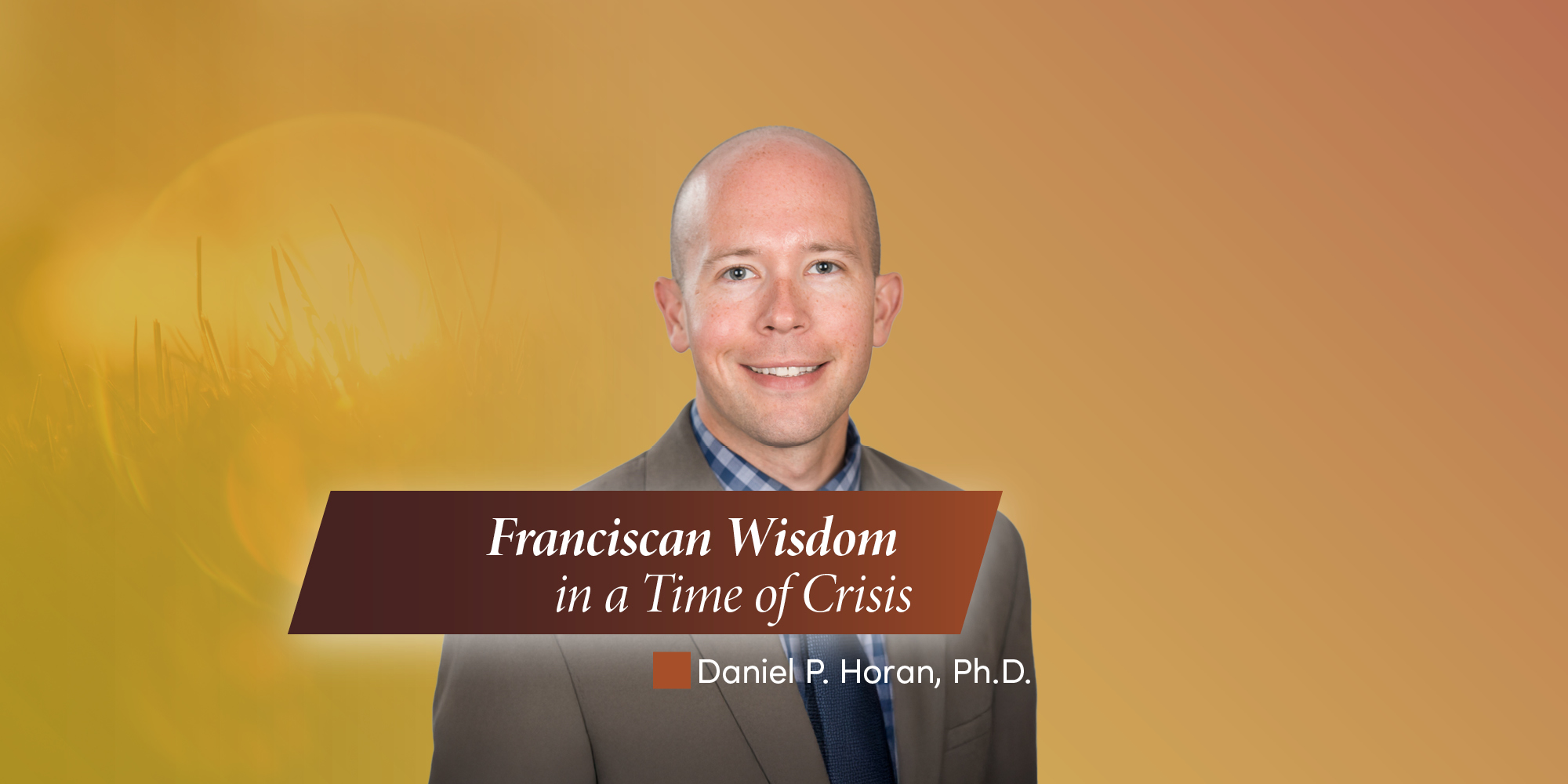The Humility and Courage to Listen for the Truth
Date Published: April 23, 2025
‘Whoever has ears, let them hear’ (Matt 11:15):
4/23/25
Daniel P. Horan PhD.
One of the many gifts that Pope Francis has offered the Church during his ministry as bishop of Rome has been his efforts, in word and deed, to re-center listening in the practice of Christian life. The greatest illustration of this, and perhaps what will become his lasting legacy, is the turn to the synodal—a process of communal discernment and dialogue, which requires careful listening, the humility to not presume you (or your “side”) have all the answers, and the courage to change as the Holy Spirit “drives” us (Mark 1:12) toward the unknown future.
In his address to the Pontifical Academy of Life, the pope exhorts the gathered scholars and, by extension, all of us to “avoid remaining immobile, anchored in our certainties, habits and fears.” I take this to be a diagnosis of the malady too often afflicting the faithful, especially those in positions of pastoral ministry or ecclesiastical leadership. We all know how scary change can be, but so too is the experience of learning something new after a long time of assuming the way we think, the way we view the world, and the habits we have formed are set in stone and the “only way” to be. When I am confronted with something new to me or recently discovered, especially if it unsettles my sense of stability or certainty, it can be discomfiting. One seemingly natural response is to get defensive, to double down, to concretize my perspective, and perhaps even attack the source of this hitherto unknown truth.
The result is a refusal to listen or listen sincerely, humbly, and courageously.
This sense of defensiveness and reactionary behavior is one of the troubling threads that are woven together into the “polycrisis” tapestry Pope Francis is addressing. I think of his namesake, Francis of Assisi, as a model of someone who learned to listen over time. Early in his story of ongoing conversion, Francis thought he knew what God was calling him to with certitude. He at first went off by himself, embracing a fuga mundi mentality, only to be confronted by the brothers, and later sisters, that the Lord had given him (Test. 14). In listening to the Holy Spirit in and through these new followers did Francis learn to change. We know that for many years he expressed a starkly negative view of higher education, until he likewise listened to Anthony of Padua and the hunger his brothers had for more theological resources to inform their preaching and ministry (LtAnt). Franciscan historians remind us that Francis was likely motivated by martyrdom in his first and failed attempt to travel to the Holy Land. But years later, listening first to the Spirit and then to his Muslim siblings, Francis’s worldview and teaching changed, even in the height of the Fifth Crusade.
Authentic listening, with humility and courage, is a form of what the pope calls “social prophecy.” Prophets don’t merely predict the future, but as St. Bonaventure explained (LMj ch. XI), they listen to what the Second Vatican Council would call the “signs of the times” (Gaudium et Spes 1) and see how the way a community is living does or does not align with God’s vision for and covenant with humanity as revealed in scripture. And then the prophet speaks up and announces those disparities, often receiving a very unwelcome reception in response. Following in the footprints of Jesus Christ like Francis and Clare before us means embracing our baptismal calling to be prophets, to not shy away from the active listening to the Holy Spirit and one another that such a vocation demands.
Pope Francis rightly states that “In the encounter with people and their stories, and in listening to scientific knowledge, we realize that our parameters regarding anthropology and culture require profound revision.” However, the church’s institutional reliance on outmoded and problematic medieval foundations for framing theological anthropology has reinscribed dangerous and dehumanizing categories for thinking about who belongs according to an essentialist and abstracted standard, and who is “disordered” or “sinful” because they do not appear to conform. Just as this kind of unscientific, prejudicial, and exclusionary logic has been used to support racism, colonialism, and genocide in the past, today we see it playing out in anti-LGBTQ+ discrimination and violence, especially against transgender, nonbinary, and intersex persons.
One of the things that the philosophical insights of John Duns Scotus offers us is a medieval set of orthodox resources that are as theologically rich as they are capable of engaging with new and emerging scientific discoveries. If, to put it simply, we began thinking about what is most important to God about each human person is the singular, unrepeatable, inalienable identity God loved into being—what Scotus called haecceitas (“this-ness”), Thomas Merton called the ”True Self,” and Gerard Manley Hopkins poetically described as “inscape”—then we might be better poised to hear the cosmic-orchestra worth of distinctive sounds that form the symphony of creation. Maybe we could be better “social prophets,” attuning ourselves to listen for the truth of each other’s identity, dignity, and value independent of our judgements, presumptions, and false certitudes. Maybe we could learn something new and experience another discomfiting yet grace-filled moment of ongoing conversion. Maybe we could understand better the truth Francis of Assisi proclaimed when he admonished us that “what we are before God, that we are and nothing more” (Adm XIX). And maybe then we might accept what Pope Francis is saying when he admits that “our parameters regarding anthropology and culture require profound revision.”

